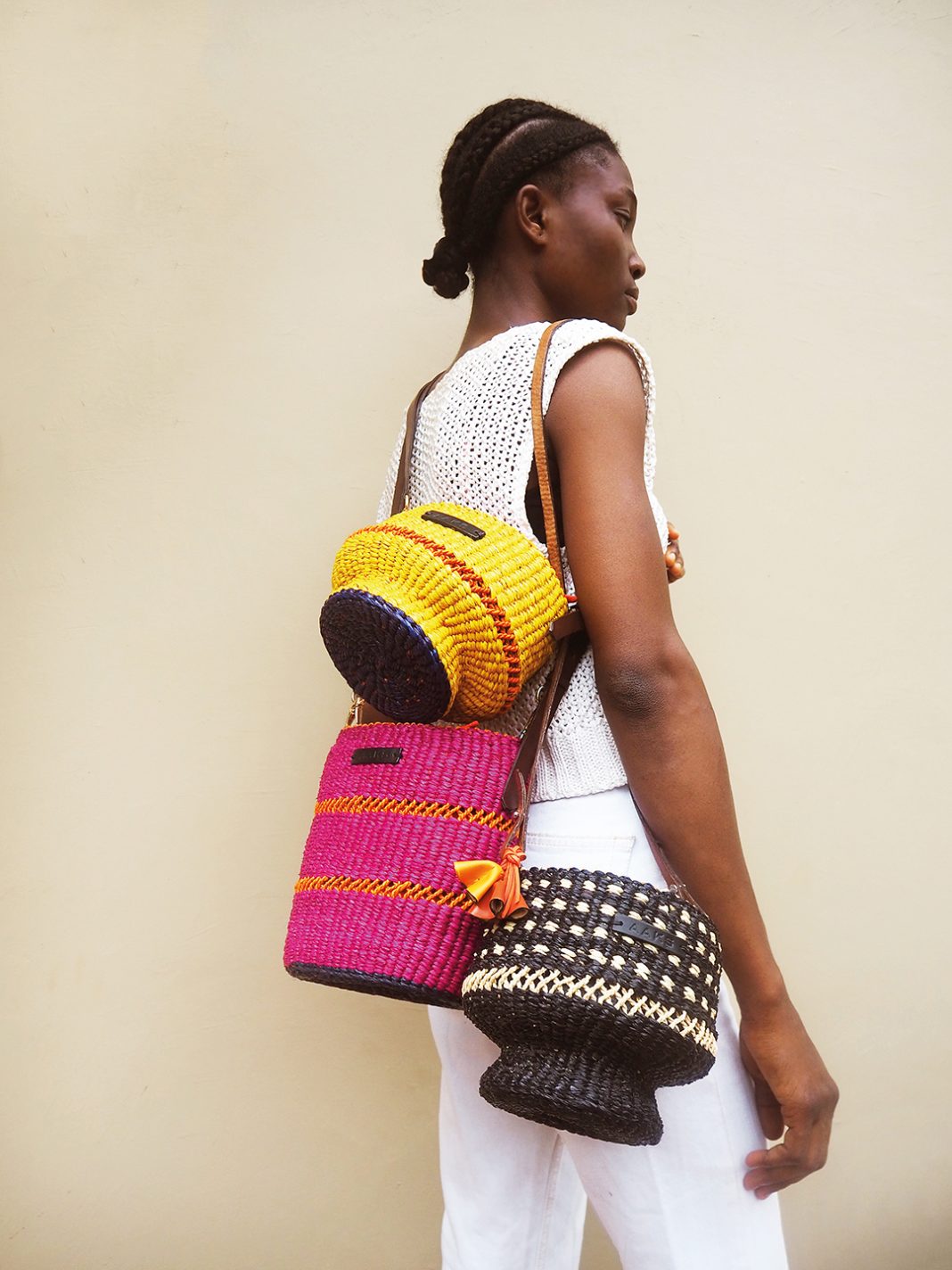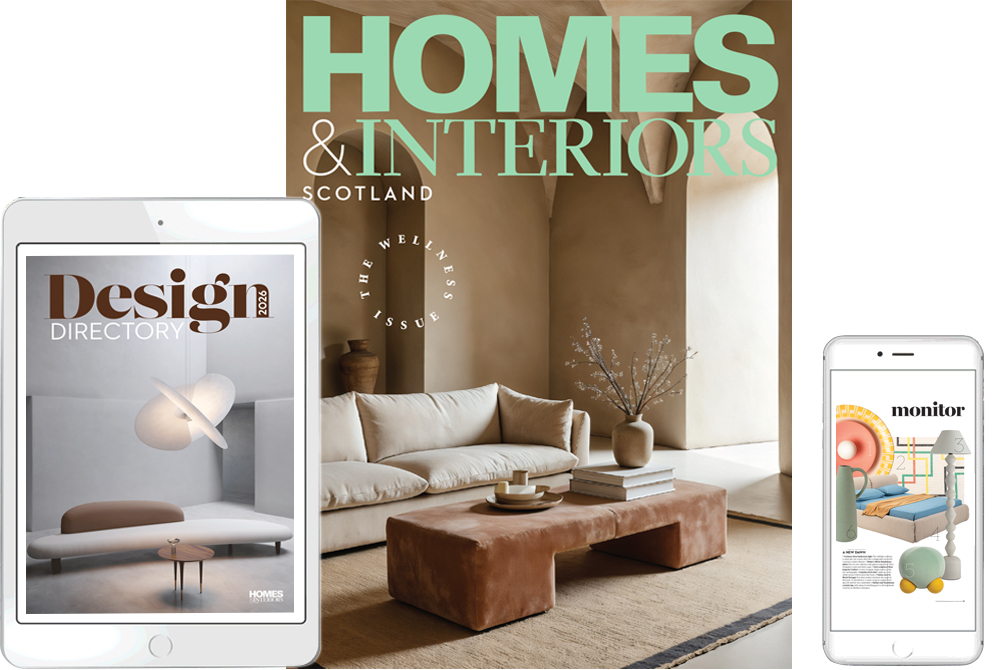Contemporary design blends seamlessly with traditional Ghanaian craft at the heart of slow-fashion brand AAKS

words Miriam Methuen-Jones
Both Akosua Afriyie-Kumi and AAKS, her vibrant ‘slow fashion’ brand, were born in Ghana. The brand’s woven bags and homeware items have been stocked by the likes of Nordstrom, Rag & Bone and other well-known stores around the world.
AAKS started, explains Afriyie-Kumi, with an interest in art and design. “I lived in Ghana until I was eighteen, before I decided to continue my education in the UK. At the time, art wasn’t valued in Ghana. People wanted their kids to be doctors or engineers. My parents suggested the UK because of its buzzing, creative energy.”
She followed her passions, studying art and design and then womenswear. After graduating, she faced a struggle familiar to most creative-minded folk: finding a job in her field of choice.

TRADITIONAL TECHNIQUES
“I’m the type of person who has thousands of business ideas tumbling about in my head,” she laughs. “My mum visited me after I graduated and suggested I move back to Ghana to pursue one of the ideas I’d been talking about all my life. I wasn’t convinced at first, but she said, ‘Just come – if it fails, at least you tried.’ So, I packed my bags.”
The original plan was for the new graduate to spend a few months back in Ghana, not to relocate there permanently. Life, however, had its own ideas. In the first year, Afriyie-Kumi travelled all over the West African country, searching for inspiration and the right makers for what she had in mind. On a road trip with her brother (“my mum insisted I take him with me”), she found herself over ten hours away from her Kumasi base, in an area of northern Ghana that few travellers ever visit.

VIBRANT BOLD COLOUR
“It was the most amazing place I’d ever been,” she recalls. “There were weavers sitting under trees working on their pieces. It was exactly what I’d been looking for and it all just fell into place.”
She started working closely with these artisans, showing them her designs, and introducing them to new materials.
“Traditionally in Ghana, nobody uses raffia – they work with straw, which is a much stiffer fibre. I gave the weavers raffia because of the intricacy of the designs I wanted to create. It was quite experimental.”
While finishing the first samples, Afriyie-Kumi documented her progress on social media, “partly to show my friends back in London what I was up to, and partly because people seemed so interested in seeing behind the scenes of the process.”

SUSTAINABLE FASHION
The extra time and effort put into maintaining an online presence paid off: four months after she launched her website, Anthropologie got in touch to say it wanted to stock some of her bags. “They said they’d been following my journey! I was in shock. That was the moment it all suddenly became real.”
The recent acceptance of a slower pace, thanks in part to the pandemic and increasingly urgent attempts to slow the impact of climate change, has benefited this young business. It takes a few weeks to finalise a product – from sourcing the raw materials, transporting them to the makers, returning the pieces to Kumasi where finishing (leather, lining, handles) takes place, and finally shipping out from the studio.
“Before the pandemic, big stores would want to stock 500 of our pieces but wouldn’t be willing to wait the five months it takes to make those by hand. Now they’re more understanding of the timeline.”

Customers have a similar approach: they know who makes the bags and how: “My customers are very ethically minded and want to learn about the brand. They’re happy to wait when necessary and embrace the ‘slow fashion’ movement.” International customers are enthusiastic about this little slice of Ghanaian culture, too.
“My favourite style of AAKS, the Baw Pot bag, is inspired by earthenware cooking pots you find in every Ghanaian home. It’s really popular because of the unusual shape, and people love the backstory.”
Despite building a brand from scratch and proving the naysayers wrong, there’s something else that this young entrepreneur appreciates: “We’re changing perceptions,” she says proudly.
“No one believed in products made in Ghana. Artisans in local markets are still stamping their goods with ‘Made in Italy’ or ‘Made in the US’ because Ghanaian craft isn’t synonymous with quality. I wanted to prove that we can create things that match the quality of European or American products. And I’m confident we’ve done just that.”







